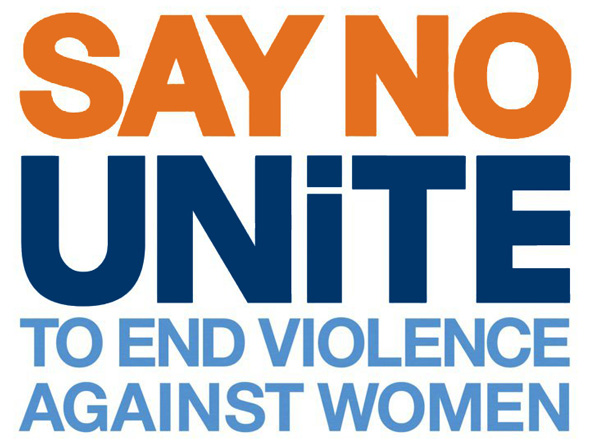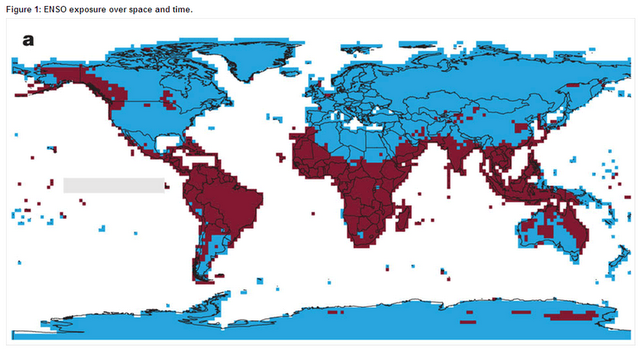-
Top 10 Posts for November 2011
›ECSP Director Geoff Dabelko’s look at seven ways seven billion people affect the planet led the top 10 last month (by unique page views), followed by a number of posts on trends: visualizations of population, health, and climate trends; what El Niño and conflict patterns say about the relationship between the two; the policy decisions that led to a commitment to family planning in Rwanda; and the effects of global population on “peak water.” Captain Wayne Porter and Colonel Mark Mykleby’s new national security narrative presentation at the Wilson Center also remained popular, and a new guest contributor, American University student Olimar Maisonet-Guzman, joined the list for the first time:
1. Seven Ways Seven Billion People Affect the Planet
2. India’s Maoists: South Asia’s “Other” Insurgency
3. Tunisia’s Shot at Democracy: What Demographics and Recent History Tell Us
4. Eye On: STATcompiler: Visualizing Population and Health Trends
5. Peter Gleick: Population Dynamics Key to Sustainable Water Solutions
6. Eye On: Twin Challenges: Population and Climate Change in 2050
7. El Niño, Conflict, and Environmental Determinism: Assessing Climate’s Links to Instability
8. Building Commitment to Family Planning: Rwanda
9. In Search of a New Security Narrative: The National Conversation Series Launches at the Wilson Center
10. Guest Contributor Olimar Maisonet-Guzman: Bring the Water-Energy Nexus to Rio+20 -
UNiTE To End Violence Against Women
›November 25, 2011 // By Schuyler NullToday is the International Day to End Violence Against Women, an awareness and advocacy campaign organized by a host of UN agencies and offices “to galvanize action across the UN system to prevent and punish violence against women.”
Gender equity and inequity play a role in a myriad of international development, health, security, and even environmental issues, from rape as a weapon of war; demography’s effects on political stability; maternal health and its impact on child development; women’s rights as a social stability issue; and the disproportionate effect of climate change on rural women.
The numbers around gender-based violence are staggering. According to the UN:
Here are some of New Security Beat’s posts on gender-based violence and inequity and their intersection with development, the environment, and security:- 70 percent of women experience physical or sexual violence from men in their lifetime.
- Approximately 250,000 to 500,000 women and girls were raped in the 1994 Rwandan genocide, and in the eastern Democratic Republic of Congo (DRC), at least 200,000 cases of sexual violence, mostly involving women and girls, have been documented since 1996, though the actual numbers are considered to be much higher.
- In the United States, one-third of women murdered each year are killed by intimate partners; in South Africa, a woman is killed every six hours by an intimate partner; in India, 22 women were killed each day in dowry-related murders in 2007; and in Guatemala, two women are murdered, on average, each day.
- Over 60 million girls worldwide are child brides, married before the age of 18, primarily in South Asia (31.1 million) and sub-Saharan Africa (14.1 million).
Gender-Based Violence in the DRC: Research Findings and Programmatic Implications:
Dr. Lynn Lawry, senior health stability and humanitarian assistance specialist at the U.S. Department of Defense, presented findings from the first cross-sectional, randomized cluster study on gender-based violence in the DRC at the Wilson Center this year. The first of its kind in the region, the population-based, quantitative study covered three districts in the DRC and a total of 5.2 million adults, comprehensively assessing gender-based violence, including its prevalence, circumstances, perpetrators, and physical and mental health impacts.
Pop Audio: Judith Bruce on Empowering Adolescent Girls in Post-Earthquake Haiti: “The most striking thing about post-conflict and post-disaster environments is that what lurks there is also this extraordinary opportunity,” said Judith Bruce, a senior associate and policy analyst with the Population Council. Bruce spent time last year working with the Haiti Adolescent Girls Network, a coalition of humanitarian groups conducting workshops focused on the educational, health, and security needs of the country’s vulnerable female youth population.
The Walk to Water in Conflict-Affected Areas: Constituting a majority of the world’s poor and at the same time bearing responsibility for half the world’s food production and most family health and nutrition needs, women and girls regularly bear the burden of procuring water for multiple household and agricultural uses. When water is not readily accessible, they become a highly vulnerable group. Where access to water is limited, the walk to water is too often accompanied by the threat of attack and violence.
Weathering Change: New Film Links Climate Adaptation and Family Planning: “Our planet is changing. Our population is growing. Each one of us is impacting the environment…but not equally. Each one of us will be affected…but not equally,” asserts the new documentary, Weathering Change, launched at the Wilson Center in September. The film, produced by Population Action International, explores the devastating impacts of climate change on the lives of women in developing countries through personal stories from Ethiopia, Nepal, and Peru.
Sajeda Amin on Population Growth, Urbanization, and Gender Rights in Bangladesh:
The Population Council’s Sajeda Amin describes the Growing Up Safe and Healthy (SAFE) project, launched in Dhaka and other Bangladeshi cities last. The initiative aims, to increase access to reproductive healthcare services for adolescent girls and young women, bolstering social services to protect those populations from (and offer treatment for) gender-based violence, and strengthen laws designed to reduce the prevalence of child marriage – a long-standing Bangladeshi institution that keeps population growth rates high while denying many young women the opportunity to pursue economic and educational advancement.
No Peace Without Women: On October 31, 2000, the UN Security Council adopted Resolution 1325, which called for women’s equal participation in all efforts to maintain and promote peace and security; however, little progress has been made over these last 10 years and women remain on the periphery when it comes to post-conflict reconstruction and development. A report from the humanitarian organization CARE concedes that “much of the action remains declarative rather than operational.”
Addressing Gender-Based Violence to Curb HIV: At last year’s International AIDS Conference in Vienna an astonishing development in the campaign to stem the spread of HIV/AIDS was unveiled – a microbicide with the ability to reduce the risk of transmission of HIV. This welcome development coincides with an intensified focus on women’s health and security needs among donors, especially the United States.
The Future of Women in the MENA Region: A Tunisian and Egyptian Perspective: Lilia Labidi, minister of women’s affairs for the Republic of Tunisia and former Wilson Center fellow, joined Moushira Khattab, former minister of family and population for Egypt, this summer at the Wilson Center to discuss the role and expectations of women in the Egyptian and Tunisian revolutions, as well as issues to consider as these two countries move forward.
Sources: UN Secretary-General’s Office. -
George Washington University’s PISA Helps Share Rural Vietnamese Climate Adaptation Strategies
›“Climate change is not a topic of debate in Vietnam, it’s a real challenge to future prosperity and security,” says George Washington University’s Partnerships for International Strategies in Asia (PISA) program in this video about their climate adaptation and mitigation work in Nam Dinh province. “[Vietnam’s] population density (265 people/square kilometer), its long coastline (3,444 km), its two major rivers (the Red and Mekong) – all help make it one of the 10 countries considered most vulnerable to climate change,” the narrator says.
-
Top 10 Posts for October 2011
›October brought plenty of talk about population – the UN estimates that the seven billionth person alive today was born on the 31st and that brought a flurry of media coverage from all corners. Elizabeth Leahy Madsen broke down how we got to that number and where we’re going. Peter Gleick explained “peak water,” Jon Foley impressed at the first South by Southwest Eco conference, and we highlighted some of the debate around Solomon Hsiang et al.’s article about El Niño and conflict. Here are the top 10, measured by unique pageviews:
1. How Did We Arrive at 7 Billion – and Where Do We Go From Here?
2. Jon Foley: How to Feed Nine Billion and Keep the Planet Too
3. India’s Maoists: South Asia’s “Other” Insurgency
4. Tunisia’s Shot at Democracy: What Demographics and Recent History Tell Us
5. Weathering Change: New Film Links Climate Adaptation and Family Planning
6. El Niño, Conflict, and Environmental Determinism: Assessing Climate’s Links to Instability
7. Watch: Peter Gleick on Peak Water
8. Peter Gleick: Population Dynamics Key to Sustainable Water Solutions
9. In Search of a New Security Narrative: The National Conversation Series Launches at the Wilson Center
10. Food Security and Conflict Done Badly…, via Edward Carr, Open the Echo Chamber -
Panetta: Diplomacy and Development Part of Wider Strategy to Achieve Security; Will They Survive Budget Environment?
›Leon Panetta – newly minted secretary of defense and former director of the CIA – gave one of his first public policy addresses yesterday at the Woodrow Wilson Center addressing national security priorities amidst a constrained budgeting environment (see video here). Under the debt ceiling agreement recently agreed to by Congress, the Pentagon is expected to achieve around $450 billion in spending cuts over the next 10 years.
Most of Secretary Panetta’s speech focused on “preserving essential capabilities,” including the ability to project power and respond to future crises, a strong military industrial base, and most importantly, a core of highly trained and experienced personnel.
But he also touched on the other two “D” s besides defense – diplomacy and development: “The reality is that it isn’t just the defense cuts; it’s the cuts on the State Department budget that will impact as well on our ability to try to be able to promote our interests in the world,” Panetta said in response to a question from ECSP Director Geoff Dabelko:National security is a word I know that we oftentimes use just when it comes to the military, and there’s no question that we carry a large part of the burden. But national security is something that is dependent on a number of factors. It’s dependent on strong diplomacy. It’s dependent on our ability to reach out and try to help other countries. It’s dependent on our ability to try to do what we can to inspire development.
Panetta’s backing of diplomacy and foreign aid as an extension of U.S. national security strategy is a continuation of vocal support by former Chairman of the Joint Chiefs of Staff Mike Mullen, former Secretary of Defense Bob Gates, and others at the Pentagon, but the bigger issue remains convincing Congress, where the State Department has become a popular target for budget cutters.
If we’re dealing with Al Qaeda and dealing with the message that Al Qaeda sends, one of the effective ways to undermine that message is to be able to reach out to the Muslim world and try to be able to advance their ability to find opportunity and to be able to seek…a better quality of life. That only happens if we bring all of these tools to bear in the effort to try to promote national security.
We’ve learned the lessons of the old Soviet Union and others that if they fail to invest in their people, if they fail to promote the quality of life in their country, they – no matter how much they spend on the military, no matter how much they spend on defense, their national security will be undermined. We have to remember that lesson: that for us to maintain a strong national security in this country, we’ve got to be aware that we have to invest not only in strong defense, but we have to invest in the quality of life in this country.
Perhaps the more useful question going forward is one of priorities. Clearly there will be (and already is) less money to go around, and the Defense Department is one of the largest outlays, while State is much smaller – the military’s FY 2012 budget request was $670.9 billion; the State Department’s, $50.9 billion. So the question is: when push comes to shove, will Secretary Panetta be able to sustain his support for diplomacy and development budgets if it means larger cuts at DOD?
Sources: Government Executive, Politico, U.S. Department of Defense, U.S. Department of State.
Photo Credit: David Hawxhurst/Wilson Center. -
Watch: First Impressions From the Inaugural SXSW Eco Conference
›October 6, 2011 // By Schuyler Null Our director, Geoff Dabelko, provides a brief update from South by Southwest’s (SXSW) first Eco conference, being held in Austin, Texas this week:
Our director, Geoff Dabelko, provides a brief update from South by Southwest’s (SXSW) first Eco conference, being held in Austin, Texas this week:
Bill Ritter, former governor of Colorado, was impressive in an interview with Bryan Walsh of Time magazine, seamlessly alternating between technical and policy questions about energy security.
Ned Breslin, CEO of Water for People, provided some real talk, challenging the notion that it’s “easy” to provide needy populations with freshwater. It’s not as simple as “$25 saves a life,” he said. Providing long-term, sustainable water and sanitation solutions to people around the world requires a great deal of hard work, particularly on financing and ownership questions.
Finally, Jon Foley of the University of Minnesota’s Institute on the Environment presented a five-step response to what he called today’s three main food challenges: providing enough to feed today’s population, tomorrow’s (an estimated nine billion people by 2050), and doing it all in a sustainable fashion. The Institute on the Environment publishes an almost-quarterly magazine, Momentum, whose work we’ve featured before on New Security Beat (here, here, and here), and, incredibly, is available, delivered to your house, for FREE. Highly recommended.
Stay tuned for more updates from SXSW, including the ECSP-supported panel, “Three Great Ideas That Won’t Be On the Rio+20 Agenda.” -
El Niño, Conflict, and Environmental Determinism: Assessing Climate’s Links to Instability
›October 5, 2011 // By Schuyler NullA recent Nature article on climate’s impact on conflict has generated controversy in the environmental security community for its bold conclusions about links between the global El Niño/La Niña cycle and the probability of intrastate conflict.
-
Top 10 Posts for September 2011
›Two Pop Audio interviews – from Rich Thorstein and Karen Seto – joined the top 10 last month (measured by unique pageviews), as well as the launch of Brahma Chellaney’s new book, Water: Asia’s New Battleground, a look at “land grabs” in the context of water access, a crosspost from Edward Carr on food security maps, and Shannon Beebe’s event from last year on his book, The Ultimate Weapon Is No Weapon.
1. Tunisia’s Shot at Democracy: What Demographics and Recent History Tell Us
2. Rich Thorsten on Water Sanitation, Population, and Urbanization in the Developing World
3. In Search of a New Security Narrative: The National Conversation at the Wilson Center
4. India’s Maoists: South Asia’s “Other” Insurgency
5. Guest Contributor Jim Duncan: Redrawing the Map of the World’s International River Basins
6. In the Rush for Land, Is it All About the Water?
7. Karen Seto on the Environmental Impact of Expanding Cities [Part One]
8. Food Security and Conflict Done Badly…, via Edward Carr, Open the Echo Chamber
9. Water: Asia’s New Battleground
10. The Ultimate Weapon Is No Weapon: Human Security and the New Rules of War and Peace
Showing posts by Schuyler Null.








